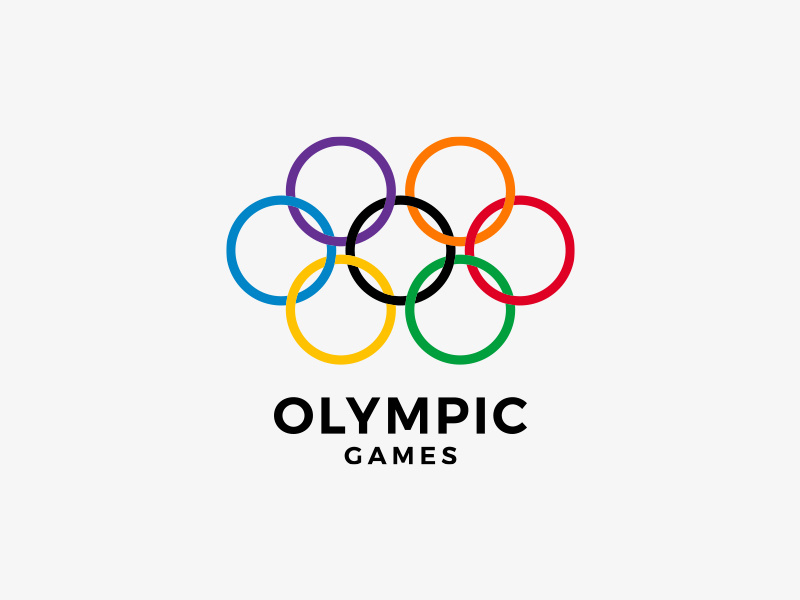
The Ancient Olympics
The roots of the Olympic Games stretch back to ancient Greece.
Originating in Olympia, a sanctuary dedicated to the god Zeus, the first recorded Olympic Games took place in 776 BC. Initially, the Games consisted of a single footrace, but over time, they expanded to include various athletic contests, including wrestling, boxing, chariot racing, and pentathlon.
Beyond physical prowess, the Ancient Olympics held immense cultural and religious significance. They served as a period of peace, a sacred truce observed throughout Greece. Athletes were revered as heroes, and their victories were celebrated as triumphs for their city-states. The Games were also a platform for poets, musicians, and artists to showcase their talents.
However, the decline of ancient Greece led to the eventual decline of the Olympic Games. In 393 AD, Roman Emperor Theodosius I, a Christian, banned the Games as pagan rituals. The Olympic flame was extinguished for nearly 1,500 years.
The Revival of the Olympics
The modern Olympic Games owe their existence to the vision of Pierre de Coubertin, a French educator. Inspired by the ideals of the ancient Games, he sought to create a global sporting event that would promote international understanding and friendship. In 1894, he founded the International Olympic Committee (IOC) and laid the groundwork for the revival of the Olympics.
The first modern Olympic Games were held in Athens in 1896. A modest gathering by today's standards, the Games featured athletes from just 13 nations competing in nine sports. Despite its humble beginnings, the event ignited a global passion for sports and competition.
The Growth and Evolution of the Modern Olympics
The early decades of the 20th century saw the Olympic movement expand rapidly. The Games were held every four years, with the Winter Olympics added in 1924 to accommodate winter sports. The number of participating nations and athletes steadily increased, reflecting the growing global reach of the Olympic ideal.
However, the Olympics were not immune to the challenges of the 20th century. World Wars I and II disrupted the Games, with the 1916, 1940, and 1944 editions cancelled. The post-war era brought renewed vigor to the Olympic movement, as nations sought to rebuild and unite through sport.
The Cold War between the United States and the Soviet Union added a political dimension to the Olympics. The Games became a stage for ideological competition, with the two superpowers vying for supremacy in the medal count. This rivalry often overshadowed the spirit of fair play and camaraderie that the Olympics were meant to embody.
The Olympics in the Modern Era
The latter part of the 20th century witnessed significant changes in the Olympic landscape. The amateur-only rule, which had long been a cornerstone of the Games, was gradually relaxed, allowing professional athletes to compete. This decision brought a new level of athleticism and competition to the Olympics.
The Olympic movement also faced increasing scrutiny over issues such as doping, corruption, and commercialism. Scandals and controversies tarnished the image of the Games, raising questions about their values and purpose.
Despite these challenges, the Olympics continue to be a global phenomenon. The Games have grown in scale and complexity, with thousands of athletes from over 200 nations participating. The opening ceremony, a spectacular showcase of culture and creativity, has become a television event watched by billions of people worldwide.
The Olympic Games have also become a powerful platform for social and political causes. Athletes have used their platform to raise awareness of issues such as human rights, gender equality, and environmental protection. The Olympics have also served as a catalyst for economic development, with host cities investing heavily in infrastructure and tourism.
The Future of the Olympics
As the world continues to evolve, so too will the Olympic Games. Challenges such as climate change, urbanization, and technological advancements will shape the future of the movement. The IOC has recognized the need to adapt and innovate to remain relevant in the 21st century.
One of the key trends is the increasing emphasis on youth and urban sports. The IOC has introduced the Youth Olympic Games and is exploring ways to incorporate more street sports and action sports into the main Games. The goal is to attract a younger audience and make the Olympics more accessible and exciting.
Another important challenge is ensuring the financial sustainability of the Olympic Games. The costs of hosting the Olympics have soared in recent years, leading to concerns about the economic impact on host cities. The IOC is working to reduce costs and make the Games more affordable for potential host cities.
Despite the challenges, the Olympic spirit continues to inspire people around the world. The Games remain a symbol of unity, diversity, and human achievement. As the world changes, the Olympics will evolve, but the core values of excellence, friendship, and respect will endure.